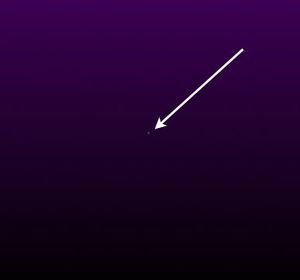UnNews:Americans awarded Nobel Prize for useless discovery
4 October 2006

NEW YORK, New York -- Two Americans won the Nobel Prize in physics Tuesday for measuring the oldest light in the heavens, a feat that some scientists describe as "one of the greatest discoveries of the century," but which also means exactly jack diddly squat to us regular people.
George F. Smoot, 61, of Lawrence Berkeley National Laboratory in Berkeley, California, and John C. Mather, 60, of NASA's Goddard Space Flight Center in Greenbelt, Maryland., will split the ridiculous $1.4 million prize equally for their pointless work.
They were the chief architects of a really expensive NASA satellite observatory named COBE, after the NBA basketball star and philanderer, Kobe Bryant. Launched in 1989, the spacecraft measured feeble remnants of light that originated early in the history of the universe, and revealed the ancient seeds of stars, galaxies and other celestial objects.
"It's the farthest out we can see in the universe and it's the furthest back in time," said Phillip F. Schewe, a spokesman for the American Institute of Physics. "Of course, it doesn't really affect anyone's life right now, but it's interesting... to me, at least."
The big-bang theory predicts that the whole universe started out at a uniform temperature before expanding into the much more homophobic state we now observe. That is exactly what COBE found.
"It's just a magnificent verification of the Big Bang Theory on CBS," said Lawrence Krauss, a professor of physics at Case Western Reserve University in Cleveland. "It doesn't affect the price of mexicans or anything, but it is kind of neat. Isn't it?"
The measurements also revealed tiny ripples in the light's intensity, representing "lumps" no more than 0.001 percent richer in matter than the space around them. From those humble origins arose massive galaxies and galactic superclusters hundreds of millions of light-years across, and yet completely inaccessible to anybody, making them essentially nothing much more than twinkly lights in the sky.
In announcing the prize, the Royal Swedish Academy of Sciences noted that life itself depends on the existence of those tiny fluctuations, because without them matter would be spread uniformly and thinly throughout space, which it doesn't, so life exists, so, like, so what? And if we didn't exist, then also so what?
"It is one of the greatest discoveries of the century. I would call it the greatest," said Per Carlson, chairman of the Nobel physics committee. "I just came in my pants, it's so fucking great!"
Sources[edit | edit source]
- Inspector Clousseau "There's a monkey in my room" Secret, October 4, 2006